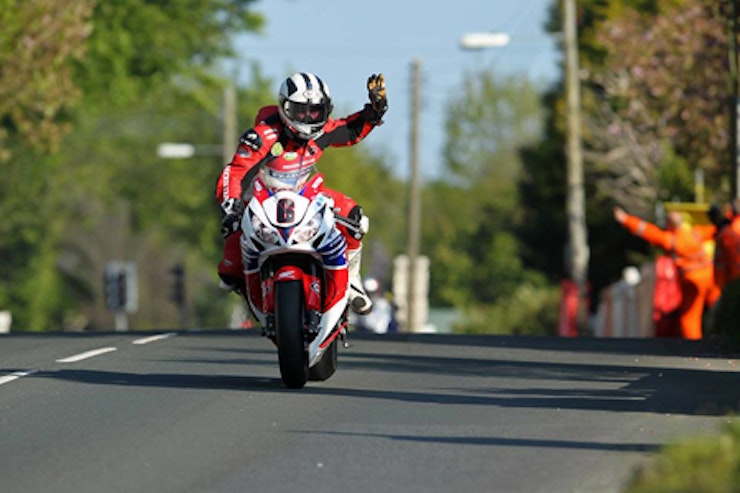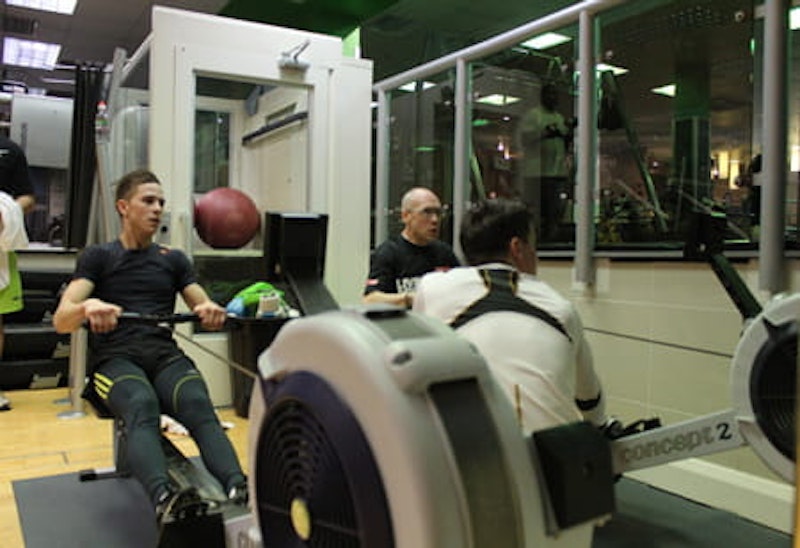Posted: 12 Jun 2013
In today’s world of professional sport many would agree that you have to be a serious athlete to be successful, whatever the sport. In some sports such as horse racing and boxing it’s part of the ruling or it’s a necessary requirement that you have to be a certain weight to compete. In other sports such as golf and motorcycling it isn’t essential but can it be to the competitor’s advantage?
After a widely reported loss of three stone since Christmas, Michael Dunlop is enjoying his most successful season yet - clinching his fourth win from four starts at this year’s Isle of Man TT. So just how important is it for motorcyclists and motorcycle racers alike to keep fit and healthy?
Importance of Hydration
Under a helmet and leathers, especially in the summer months, you are likely to be losing a lot of water through sweat that you’re not replacing when riding. This leads to dehydration, which can affect your physical and mental performance.
Dehydration occurs when the body is losing more water than it is taking in
Percentage of dehydration means the percentage of the total water in the body lost
3% dehydration decreases G-force tolerance by 50% and therefore athletic performance
Air circulation over your body on a bike increases perspiration (sweating)
At 3% dehydration you feel thirsty, at 4% you no longer feel thirsty, this is when it can start to become dangerous.
If you wfeel dizzy and drowsy, dehydration will be between 5% and 10%
Muscle strength and mental abilities will be diminished with just 2% dehydration
Drinking 15-20 fluid ounces (1 pint) of water (not tea or coffee for example) 30 minutes before a strenuous race or ride will maintain hydration during the ride.
Nutrition
Staying fit and healthy or embarking on a fitness programme requires good nutrition to complement your physical exertion. As a motorcyclist this is equally important.
The brain only uses glucose to fuel itself
Muscles primarily use glucose as well
Electrolytes (potassium & sodium) lost in sweat leads to mental fatigue, muscle weakness and spasms
If you can take on roughly one quarter of a bottle of 500ml Lucozade during exercise every 15 minutes is a good guideline for the intake of glucose
Muscle recovery is optimised if replenishment occurs 30-60 minutes after exertion.
Fitness
Keeping fit means many things to different people, and one person’s idea of strenuous exercise will not be someone else’s! When your body is tired, reaction times are slower and your ability to make judgments while on a bike can be compromised.
Cardiovascular exercise is a good way to improve overall fitness and activities such as running, cycling and swimming all increase heart rate and enable the heart and lungs to get oxygen to the muscles more effectively. Endurance is particularly important for a motorcyclist too, especially upper leg muscles, quadriceps and hamstrings and lower back muscles and abs should also be focused on for core stability.
Here are our top tips for maintaining fitness:
Try mountain biking, a stationary bike or spinning classes (a combination of all 3 would be best)
It’s recommended that your fitness exercises should be trying to mimic the movements you do on a bike
Try to exercise 3 times a week but you can get away with 2 if you’re eating well Don’t feel you have to be exhausting yourself with exercise everyday. Rest is important and a 5-7 day a week regime probably won’t last long
Try to ride your bike more often and alternate usual routes with varying road types to exercise different muscles.
Share on social media:

